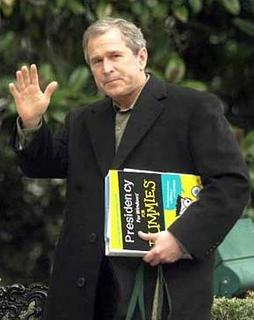Sgt. Thomas E. Houser, 22, of Council Bluffs, Iowa, died Jan. 3 as result of enemy action in Al Anbar Province, Iraq. He was assigned to 2nd Force Reconnaissance Company, II Marine Expeditionary Force, Camp Lejeune, N.C.
Staff Sgt. Robert K. McGee, 38, of Martinsville, Va., died June 30, in Manila, Republic of the Philippines, of non-combat related injuries. McGee was assigned to the 2nd Battalion, 1st Special Forces Group, Fort Lewis, Wash. Operation Iraqi Freedom
Sgt. 1st Class Otie J. McVey, 53, of Oak Hill, W.V., was medically evacuated from Baghdad, Iraq, on Sept. 23 for treatment of a non-combat related illness. He died Nov. 7 in Beaver, W.V. McVey was assigned to the Army Reserve’s 706th Transportation Company, Kenton, Ohio.
Sgt. Foster Pinkston, 47, of Warrenton, Ga., died Sept. 16, in Eisenhower Army Medical Center in Augusta, Ga., from a non-combat related illness. Pinkston was assigned to the Army National Guard’s 878th Engineer Battalion, Augusta, Ga.
Pvt. Cory R. Depew, 21, of Beech Grove, Ind., died Jan. 4 in Mosul, Iraq, when his Stryker military vehicle was struck by a rocket-propelled grenade. Depew was assigned to the 2nd Squadron, 14th Cavalry Regiment, 1st Brigade, 25th Infantry Division (Stryker Brigade Combat Team), Fort Lewis, Wash.
Lance Cpl. Julio C. CisnerosAlvarez, 22, of Pharr, Texas, died Jan. 6 as result of hostile action in Al Anbar Province, Iraq. He was assigned to 1st Battalion, 7th Marine Regiment, 1st Marine Division, I Marine Expeditionary Force, Twentynine Palms, Calif.
Sgt. Bennie J. Washington, 25, of Atlanta, Ga., died Jan. 4 in Brooke Army Medical Center, San Antonio, Texas, of injuries sustained Oct. 14 in Ar Ramadi, Iraq,
when his military vehicle was struck by a rocket-propelled grenade. Washington was assigned to the 44th Engineer Battalion, 2nd Infantry Division, Camp Howze, Korea.
Sgt. Zachariah S. Davis, 25, of Twentynine Palms, Calif., died Jan. 6 as result of hostile action in Al Anbar Province, Iraq. He was assigned to 3rd Light Armored Reconnaissance Battalion, 1st Marine Division, I Marine Expeditionary Force, Twentynine Palms, Calif.
The Department of Defense
announced the death of three soldiers . They died Jan. 4 in Taji, Iraq,
when an improvised explosive devise detonated near their military vehicle. Killed were:
Spc. Jimmy D. Buie, 44, of Floral, Ark. Buie was assigned to the Army National Guard’s 3rd Battalion, 153rd Infantry Regiment, 39th Infantry Brigade Combat Team, Fordyce, Ark.
Spc. Jeremy W. McHalffey, 28, of Mabelvale, Ark. McHalffey was assigned to the Army National Guard’s 39th Infantry Brigade, Little Rock, Ark.
Spc. Joshua S. Marcum, 33, of Evening Shade, Ark. Marcum was assigned to the Army National Guard’s 3rd Battalion, 153rd Infantry Regiment, 39th Infantry Brigade Combat Team, Camden, Ark.
Pfc. Curtis L. Wooten III, 20, of Spanaway, Wash., died Jan. 4 in Balad, Iraq, when an improvised explosive device detonated near his military vehicle. Wooten was assigned to the 1st Battalion, 77th Armor Regiment, 1st Infantry Division, Schweinfurt, Germany.
The Department of Defense announced the death of
six Soldiers . They died January 6 in Baghdad, Iraq, when an improvised explosive device struck their Bradley fighting vehicle. All six were assigned to the Army National Guard’s 256th Infantry Brigade (Mechanized), Lafayette, La.
A seventh Soldier was also killed in the incident but the information will be released separately based upon next of kin notification policies. Killed were:
Sgt. 1st Class Kurt J. Comeaux, 34, of Raceland, La., was assigned to the Army National Guard’s 256th Infantry Brigade (Mechanized), Lafayette, La.
Sgt. Christopher J. Babin, 27, of Houma, La., was assigned to the Army National Guard’s 256th Infantry Brigade (Mechanized), Lafayette, La.
Spc. Bradley J. Bergeron, 25, of Houma, La., was assigned to the Army National Guard’s 256th Infantry Brigade (Mechanized), Lafayette, La.
Spc. Huey P. L. Fassbender, 24, of LaPlace, La., was assigned to the Army National Guard’s 256th Infantry Brigade (Mechanized), Lafayette, La.
Spc. Armand L. Frickey, 20, Houma, La., was assigned to the Army National Guard’s 256th Infantry Brigade (Mechanized), Lafayette, La. Spc. Warren A. Murphy, 29, of Marrero, La., was assigned to the Army National Guard’s 256th Infantry Brigade (Mechanized), Lafayette, La.
Pfc. Kenneth G. Vonronn, 20, of Bloomingburg, N.Y., died January 6 in Baghdad, Iraq, with six of his fellow Soldiers when an improvised explosive device struck their Bradley fighting vehicle. Vonronn was assigned to the Army National Guard’s Headquarters and Headquarters Company, 1st Battalion, 69th Infantry Regiment, 42nd Infantry Division, New York, N.Y.
Pfc. Daniel F. Guastaferro, 27, of Las Vegas, Nev., died January 7 in Ar Ramadi, Iraq, when his military vehicle left the road and went into a canal. Guastaferro was assigned to the 1st Battalion, 503rd Infantry Regiment, 2nd Brigade Combat Team, Camp Casey, Korea.
Spc. Dwayne J. McFarlane Jr., 20, of Cass Lake, Minn., died Jan. 9 in Baghdad, Iraq, when his dismounted patrol was hit by an improvised explosive device. McFarlane was assigned to the 2nd Battalion, 15th Field Artillery Regiment, 10th Mountain Division (Light Infantry), from Fort Drum, N.Y.
Cpl. Joseph E. Fite, 23, of Round Rock, Texas, died Jan. 9 as a result of hostile action in Al Anbar Province, Iraq. He was assigned to the Marine Forces Reserve’s 1st Battalion, 23rd Marine Regiment, 4th Marine Division, Austin, Texas.
On January 11th 2005 Department of Defense announced the
death of two soldiers who were supporting Operation Iraqi Freedom. They died Jan. 10 in Baghdad, Iraq, when an improvised explosive device hit their military vehicle. Both soldiers were assigned to the Army National Guard's 3rd Battalion, 156th Infantry Regiment, 256th Infantry Brigade, Lake Charles, La. Killed were:
Staff Sgt. William F. Manuel, 34, of Kinder, La.
Sgt. Robert W. Sweeney III, 22, of Pineville, La.



